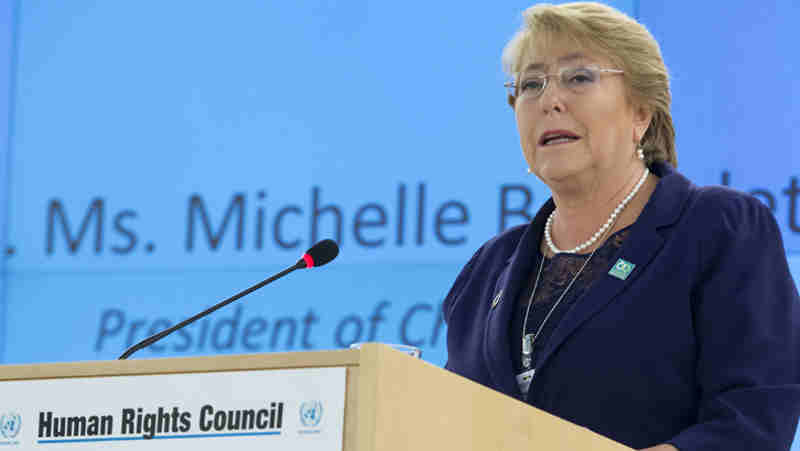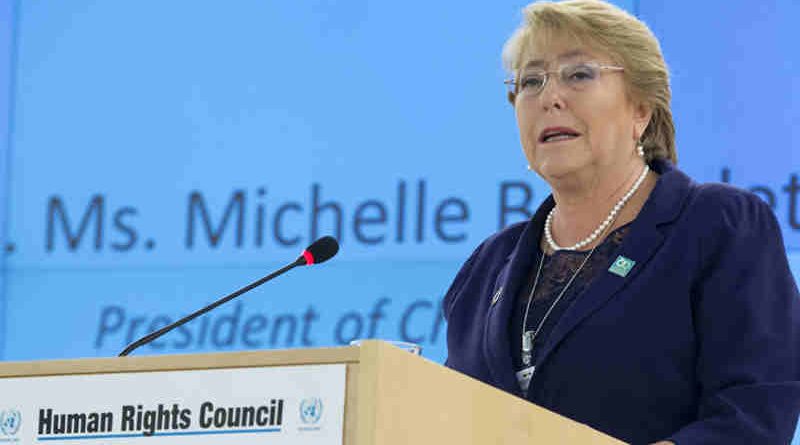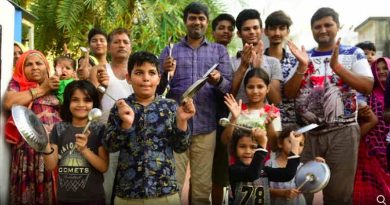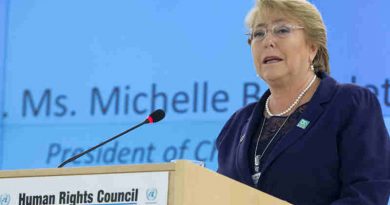UN Human Rights Experts Urge India to Release CAA Protest Leaders

By RMN News Service
A group of UN experts* called on India on Friday (June 26) to immediately release human rights defenders who have been arrested for protesting against changes to the nation’s citizenship laws.
“These defenders, many of them students, appear to have been arrested simply because they exercised their right to denounce and protest against the CAA (Citizenship Amendment Act), and their arrest seems clearly designed to send a chilling message to India’s vibrant civil society that criticism of government policies will not be tolerated,” the experts said.
According to the UN experts, one of the most alarming cases concerns pregnant Delhi student Safoora Zargar, who was detained for over two months having allegedly been kept in conditions equating to solitary confinement, denied regular contact with her family and legal representative, and having not been provided adequate medical care or diet. She was finally granted bail on 23 June 2020, in her sixth month of pregnancy, on humanitarian grounds.
The CAA provides expedited and simplified access to citizenship for people from specific religious minorities from several neighbouring countries but it excludes Muslims. Its adoption in December 2019 provoked nationwide protests by Indians from diverse faiths – including Hindus – who believe it violates the secular foundations of India’s constitution.
Many of the 11 individual cases (Meeran Haider, Gulfisha Fatima, Safoora Zargar, Asif Iqbal Tanha, Devangana Kalita, Natasha Narwal, Khalid Saifi, Shifa Ur Rehman, Dr. Kafeel Khan, Sharjeel Imam, Akhil Gogoi) include serious allegations of human rights violations, several relating to due process failings during arrest and detention, as well as allegations of torture and ill-treatment.
Meanwhile, the National Human Rights Commission (NHRC) of India – a toothless body that works under the government directions and fails to protect human rights of Indians – has released its report on police atrocities on the students of Delhi’s Jamia Millia Islamia who were leading the CAA protest.
According to an article on June 26 in The Wire news site, the NHRC report has stated that the protest against the CAA by Jamia students on December 15, 2019 was an ‘unlawful assembly’ and had invited police action against itself.
Since NHRC – like most Indian courts – cannot dare to challenge the brutal police actions supported by the government – it blamed the peaceful students who were protesting against the CAA.
“Authorities should immediately release all human rights defenders who are currently being held in pre-trial detention without sufficient evidence, often simply on the basis of speeches they made criticizing the discriminatory nature of the CAA,” the UN rights experts said.
UN experts call on #India to immediately release rights defenders, arrested for protesting against changes to the nation’s citizenship laws. The arrests seem designed to send a chilling message that criticism of government policies will not be tolerated 👉 https://t.co/yvCAQhVnvG pic.twitter.com/z6xWJhUlAp
— UN Special Procedures (@UN_SPExperts) June 26, 2020
The experts also highlighted their concern that the Indian authorities’ response to the protests seemed discriminatory. It appears they have not similarly investigated allegations of incitement to hatred and violence made by CAA supporters, some of whom are reported to have chanted “shoot the traitors” at counter-rallies.
The experts further flagged their concern that the Indian authorities were invoking counter-terrorism or national security legislation, and using procedural police powers, to deny bail to protesters and issue charges carrying heavy sentences.
“Although demonstrations ended in March due to the Covid-19 pandemic, and India’s Supreme Court issued a recent order to decongest jails because of health concerns related to the pandemic, protest leaders continue to be detained. The reported spread of the virus in Indian prisons makes their immediate release all the more urgent,” the experts said, adding that they are in contact with the Indian Government on this matter.
*The UN experts are: Ms. Mary Lawlor, Special Rapporteur on the situation of human rights defenders; Ms. Leigh Toomey (Chair-Rapporteur), Ms. Elina Steinerte (Vice-Chair), Mr. José Guevara Bermúdez, Mr. Seong-Phil Hong, Mr. Sètondji Adjovi (Working Group on Arbitrary Detention); Mr. David Kaye, Special Rapporteur on the promotion and protection of the right to freedom of opinion and expression; Mr. Clément Nyaletsossi Voule, Special Rapporteur on the rights to peaceful assembly and of association; Mr. Fernand de Varennes, Special Rapporteur on minority issues; Ms. E. Tendayi Achiume, Special Rapporteur on Contemporary Forms of Racism; Mr.Ahmed Shaheed The Special Rapporteur on freedom of religion or belief; Ms. Fionnuala D. Ní Aoláin, Special Rapporteur on the promotion and protection of human rights and fundamental freedoms while countering terrorism; Mr. Nils Melzer, Special Rapporteur on torture and other cruel, inhuman or degrading treatment or punishment.




